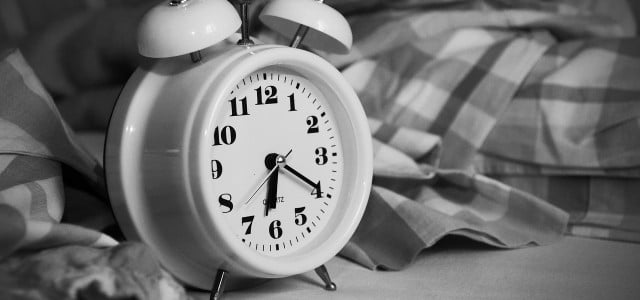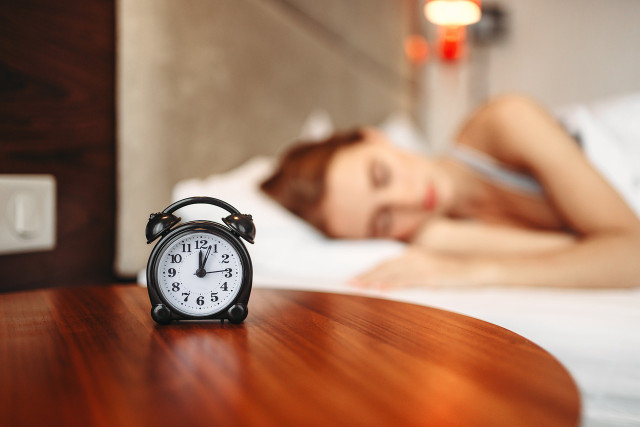
Many believe that snoozing gives them a few minutes of extra sleep and allows them to wake up particularly gently. But experts advise against using the snooze function.
Are you one of those people who find it difficult to get out of bed in the morning and therefore like to press the snooze button on the alarm clock? In such moments, the snooze function may feel like a good decision – after all, you can get a few more valuable minutes of sleep. But the delayed awakening can take revenge during the day in the form of exhaustion.
This is what happens when you snooze

(Photo: CC0 / Pixabay / Katniss12)
The ringing of the alarm wakes you up, but thanks to the snooze button you can fall back on your feathers again. Shortly after you drift back to sleep, however, the alarm clock startles you again. Many people procrastinate waking up in this way several times in a row.
Of the 450 subjects in a study, more than half (57 percent) used the snooze function. According to the results, people who are particularly prone to snooze
- are female and young
- take few steps a day
- are less conscientious
- have restless sleep and
- are an evening chronotype.
According to the researchers, snooze button users have an increased resting heart rate and lighter sleep in the hours before waking up. The scientists suspect that these symptoms are related to the habit of snoozing. They may bring short-term benefits as you can wake up more easily from lighter sleep. Further research would have to follow to explore whether the habit can also have a negative impact on health. According to the researchers, those who doze do not sleep less or are more tired than people who do not snooze.
Better than snoozing: set the alarm as late as possible
Nevertheless, Hans-Günter Weeß, board member of the German Society for Sleep Research and Sleep Medicine (DGSM), advises not to snooze in an interview with the editorial network Germany. It is a testament to the chronic lack of sleep in society that 80 percent of Germans wake up with the help of an alarm clock and not by themselves. Being woken up in the morning by an alarm means that the last phase of sleep is artificially interrupted and with it “the most important repair and regeneration program of the organism before it has fulfilled its task”.
When snoozing, this interruption often occurs several times. This can confuse the body, because if you fall asleep again afterwards, it releases hormones that herald the deep sleep phase. But before you reach it, the alarm clock rings again.
Instead of snoozing, Hans-Günter Weeß therefore recommends setting the alarm for the latest possible wake-up time and then getting up immediately so as not to interrupt the last phase of sleep. If you still find it difficult to get out of bed, you should trick yourself and set the alarm clock a few meters away from the bed. So you are forced to get up and turn it off. With the help of morning exercise and cold showers, you can then activate the circulation to wake up.
Read more on Techzle.com:
- Morning grouch: 6 tips for getting up and against a bad mood
- Tips for falling asleep: Practical sleeping aids
- Natural Sleep Aids: These 4 will help you fall asleep